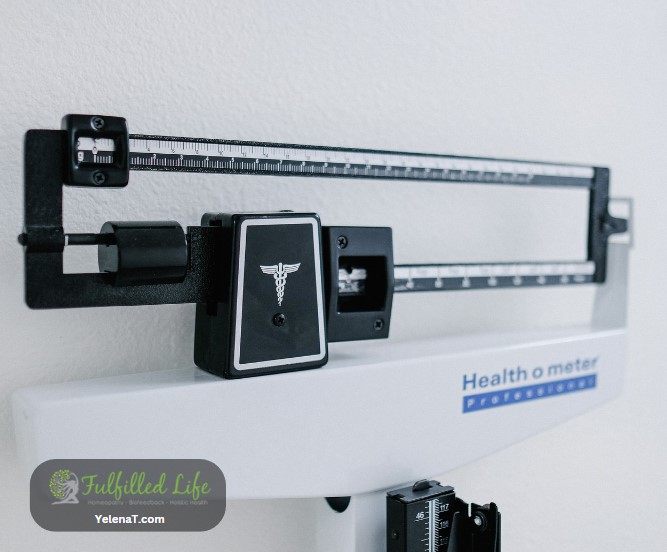Cortisol, often called the “stress hormone,” plays a significant role in various bodily functions, including managing how your body uses carbohydrates, fats, and proteins. It also regulates inflammation, blood pressure, and sleep cycles. During periods of stress, cortisol levels can increase, leading to various effects on the body, including weight gain. This is particularly relevant for women going through perimenopause or menopause, as these are periods of significant hormonal changes that can also affect cortisol levels.
Here’s how elevated cortisol levels can contribute to weight gain in perimenopausal or menopausal women:
- Increased Appetite: High cortisol levels can lead to an increased appetite. Cortisol is known to influence appetite and cravings for high-calorie, fatty, and sugary foods, which can lead to weight gain if these cravings are succumbed to regularly.
- Fat Storage: Elevated cortisol levels can promote fat storage, particularly in the abdominal area. This is because cortisol influences fat distribution by favoring visceral fat (the fat stored within the abdominal cavity), which is more metabolically active and easier to gain but harder to lose. This type of fat is also linked to a higher risk of cardiovascular disease and type 2 diabetes.
- Insulin Resistance: Chronic high cortisol can lead to insulin resistance, a condition where the body’s cells become less responsive to insulin. This can cause higher blood sugar levels and increase the risk of weight gain and type 2 diabetes. Insulin resistance also makes it harder to lose weight.
- Interference with Other Hormones: Perimenopause and menopause are characterized by fluctuations and eventual decline in estrogen and progesterone levels. Elevated cortisol can further unbalance these hormone levels, affecting metabolism and leading to weight gain. For instance, lower estrogen levels are associated with a slower metabolism, which can contribute to weight gain.
- Effects on Sleep: High cortisol levels can disrupt sleep patterns, leading to insomnia or poor-quality sleep. Poor sleep is linked to weight gain because it can affect the hormones that control hunger and appetite (ghrelin and leptin), leading to increased appetite and cravings.
- Reduced Physical Activity: The fatigue and mood changes (like depression or anxiety) associated with high cortisol levels can lead to decreased physical activity. Less physical activity means fewer calories burned, contributing to weight gain.
Understanding the impact of cortisol on your body is crucial for women of all ages. Reflecting on your health and well-being, when was the last time you tested your cortisol levels?
If it’s been a while since your last test, you should consider testing again. You can even test your hormones with at-home tests. Feel free to reach out, and I will recommend an appropriate test for you.
Monitoring these levels could be a key step in managing stress, balancing hormones, and maintaining a healthy weight, important considerations for maintaining overall health throughout life.








